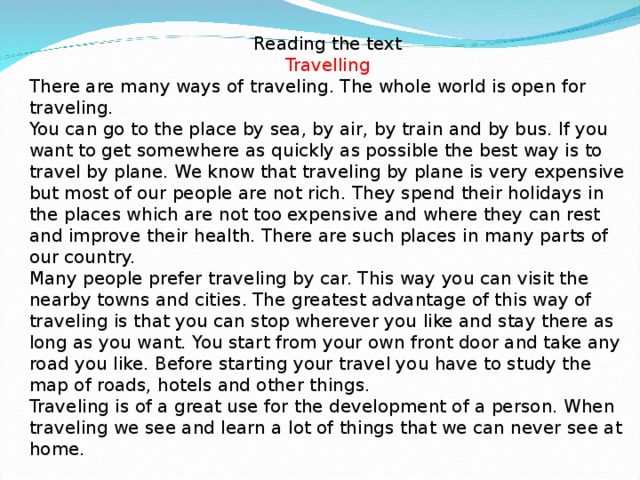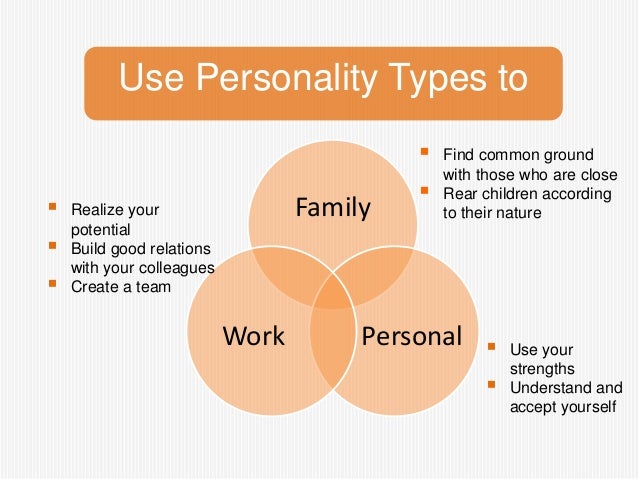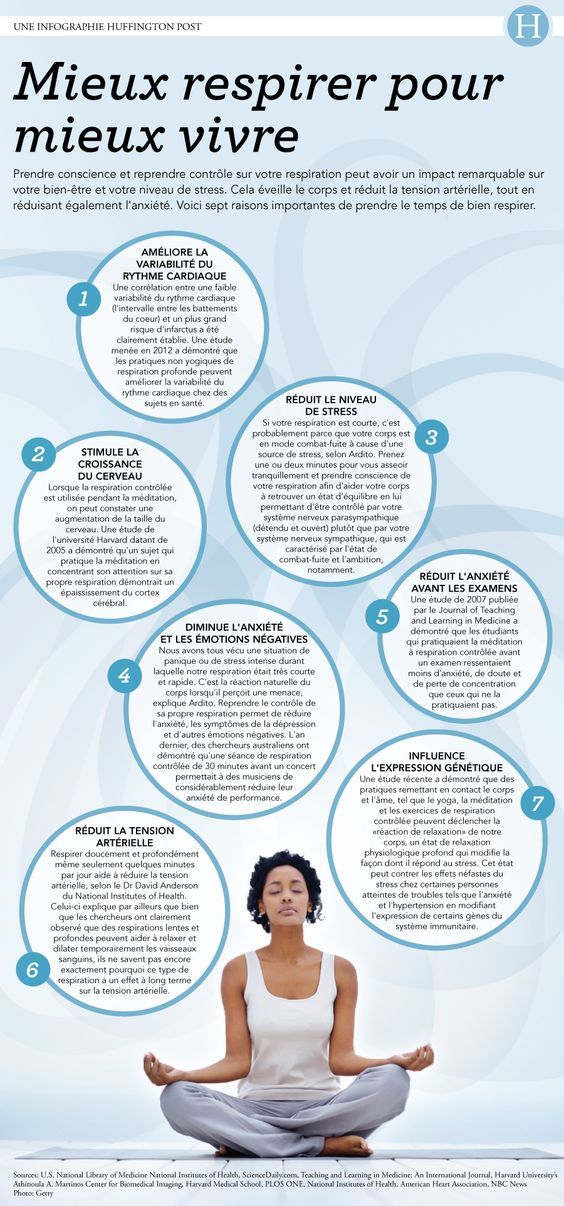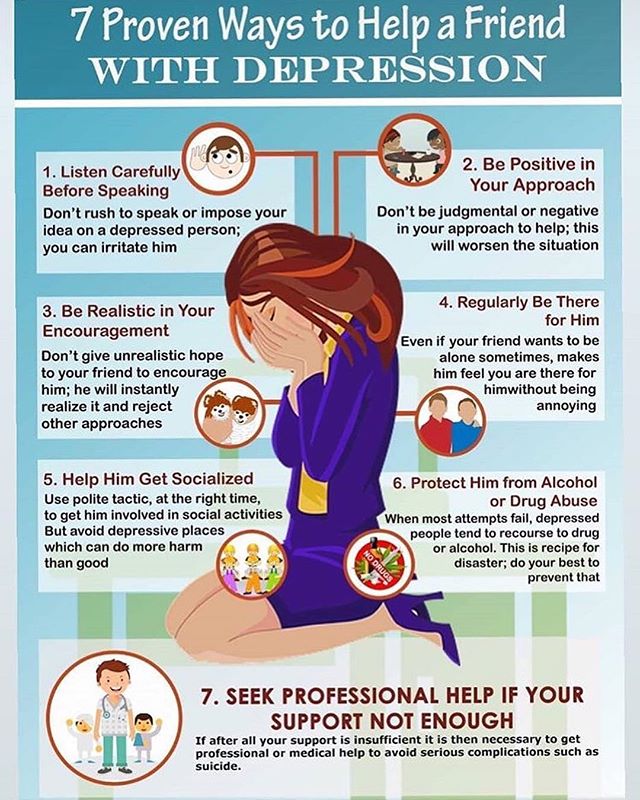How to deal with empty nest syndrome
How to cope when kids fly the coop
Jump to section
What is empty nest syndrome?
What are the symptoms of empty nest syndrome?
How long does empty nest syndrome last?
3 stages of empty nest syndrome
Are some parents more susceptible than others?
How to deal with empty nest syndrome
Being a parent sure has its ups and downs. From hearing their first words to waving goodbye on their first day as a senior in high school, having children is full of significant life events.
But there’s one big event in family life that many parents struggle with. And that’s when their children leave home.
Empty nest syndrome is the grief that many parents feel when their children move out of the home. While it isn’t a clinical diagnosis, it is a common phenomenon in which parents experience sadness and loneliness. They grieve the loss of a lifestyle and relationship that was part of their identity.
Let’s look at some symptoms of empty nest syndrome and how you can healthily deal with your children leaving the nest.
What is empty nest syndrome?
Empty nest syndrome is the sadness or emotional turmoil that parents grapple with in the wake of their children growing up and moving out of their family home. ‘Nest’ refers to the popular saying that children 'spread their wings’ when they grow up and move on.
We often hear the words ‘empty nest syndrome’ when the end of the high school or college season draws near. It stirs up some mixed feelings: anxiety, excitement, relief, and sadness.
On the one hand, you are proud to see your child go out into the world as an independent young adult. On the other hand, you can’t help but worry over their well-being while grieving the closeness that came with living under the same roof.
The good news is that you are not alone in your experience of empty nest syndrome.
What are the symptoms of empty nest syndrome?
Empty nest syndrome manifests in different ways for different people. Let’s look at some common symptoms.
Loneliness
Following the departure of your beloved child, you may feel overwhelmingly alone. It can be isolating to wake up one morning and remember that your children are no longer living at home with you.
It can be isolating to wake up one morning and remember that your children are no longer living at home with you.
Emotional distress
Empty nest syndrome can be a rollercoaster ride. One minute you are crying at the sight of a family photograph, and the next, you are fantasizing about what to do with your newfound space and freedom. This might lead you to feel emotionally exhausted.
A loss of purpose
Being a parent, particularly a stay-at-home parent, is a full-time job. When you no longer see your kids daily, it can leave an enormous vacuum. This void, or sense of nothingness, may cause you to feel as if you are lacking in purpose.
Fear of a lack of control
When your child moves away, you can no longer keep tabs on them. This can feel like a great loss of control for many parents. You may feel tempted to check up on them every hour and want to know their every move.
Worry and anxiety
Hopefully, you trust your child and have faith in your ability to raise a capable individual. Nonetheless, you may feel like you are wading through a fast-flowing river of worry and anxiety. It’s normal for your imagination to run wild and catastrophize minor troubles.
Nonetheless, you may feel like you are wading through a fast-flowing river of worry and anxiety. It’s normal for your imagination to run wild and catastrophize minor troubles.
Depression
For the most part, a parent will spend around 18 years looking after and living with their child. There is a deep sense of grief and sadness that comes with learning to love them from a distance.
How long does empty nest syndrome last?
Every parent will have a different experience of empty nest syndrome. It may only last a few weeks for some, while it may persist for years for others.
Typically, parents will experience the symptoms of empty nest syndrome for a few months. ‘A few months’ may be anything from two months to a whole year.
One survey found that it takes parents an average of three months to get used to an empty house.
However, empty nest syndrome can start as an anticipatory emotional response before your child has actually moved out.
It is completely okay if it takes you a bit longer to overcome these feelings. Everybody has their own timeline for processing loss and adapting to a change of life stage or change in lifestyle.
Everybody has their own timeline for processing loss and adapting to a change of life stage or change in lifestyle.
As much as possible, don’t time-pressure yourself into a state of false emotional well-being.
That being said, it’s important to realize that clinical depression may be misconstrued as empty nest syndrome. 5% of the global population struggles with depression. If your symptoms persist for a prolonged period of time, we highly advise that you seek professional guidance.
3 stages of empty nest syndrome
According to Carin Rubenstein’s widely renowned book, Beyond the Mommy Years, there are three stages of empty nest syndrome:
1. Grief
When your child first leaves home, you are likely to feel overcome by feelings of sadness and loss. You may be feeling teary-eyed and emotionally triggered by the simplest things.
This sadness could make you withdraw from the world for some time as you try to deal with the immense change that has taken place in your life.
2. Relief
After a few months have passed, you may find yourself relishing your newfound freedom.
Instead of the mental load from having to drive your kids everywhere and never-ending housekeeping, you now have time for self-care and hobbies. This newly liberated lifestyle is bound to inspire a sense of relief.
3. Joy
Once you have ridden the roller-coaster of sadness, reprieve, and freedom, you should reach the stage of joy. Hopefully, you have settled into your new self-determined rhythms. Perhaps you might be establishing new social networks or finally booking that couple’s getaway. Or maybe, even a solo vacation.
You can rest assured that with your conscious parenting, you have sent your child out into the world with all the necessary love, knowledge, and support.
Are some parents more susceptible than others?
No one can predict their experience of empty nest syndrome. However, it has been noted that a few types of parents are slightly more susceptible to experiencing the symptoms of empty nest syndrome.
Helicopter parents
Helicopter parents pay incredibly close attention to the behaviors and problems experienced by their child. They tend to intervene at the minor hint of struggle or trouble.
They ‘hover overhead,’ hence the name. Their instinct to protect and nurture may override the rational voice in their head that assures them their child needs space.
Stay-at-home parents
The more time you spend with your children, the more you feel responsible for meeting all their needs. You become each other’s full-time companion.
Parenting is, essentially, your job. Realizing that your role in their lives has to shift dramatically is challenging to accept.
Single parents
As a single parent, you may feel solely responsible for your child’s well-being and happiness. When they leave, you cannot go through the emotional struggles with your child’s other parent. This can make the feelings of loneliness and confusion worse.
As 90% of single parents are women, it is more likely that a mother will experience heightened symptoms of empty nest syndrome.
Parents who rely on their parent roles for self-identity
Many parents, particularly full-time parents, get their sense of purpose and motivation from their roles as parents. Parenthood is integral to their sense of identity. When they cannot assume that role, it can trigger feelings of insecurity and self-doubt.
Parents with marital struggles
In some marriages, the only thing keeping the relationship going is the mutual love for their children. Often, parents want to protect their children from the pain of parental divorce.
Even in a less extreme instance, a struggling relationship may worsen feelings of depression and isolation. And the struggles within the relationship may become more apparent once the children leave the house.
How to deal with empty nest syndrome
As difficult as it is, there are ways for you to cope with empty nest syndrome. Here are some ideas:
1. Make social connections
Use your free time to reconnect with old friends.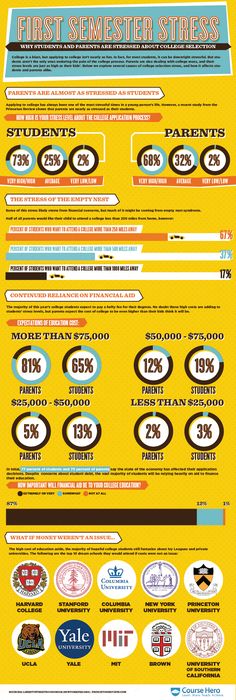 Understandably, parents may neglect their social relationships as they barely have time for themselves, let alone others.
Understandably, parents may neglect their social relationships as they barely have time for themselves, let alone others.
Try to enter a new social space that offers new connections. Investing in friendships is a healthy distraction, and it alleviates feelings of loneliness.
2. Seek professional help
If your symptoms of empty nest syndrome are severe and they persist, you should seek professional guidance. A trained counselor can offer grief support and help you manage your emotions.
The symptoms of depression may be confused with the symptoms of empty nest syndrome, and if you suffer from the former, you can utilize safe and effective therapies.
3. Set goals for the future
Adopting a forward-looking mindset alleviates feelings of grief. It sparks motivation and promotes a healthy sense of perspective. Setting and achieving goals also encourages the development of your authentic identity.
4. Take up a new hobby or career
Exploring different facets of your identity and expanding your interests can be an incredibly fulfilling journey.
Try out a variety of new activities in your area, whether that’s a book club or yoga classes. A new physical activity is a wonderful way of broadening your social circle while maintaining your physical health.
Or maybe a new career path may be the self-confidence boost you need. Changing your career allows you to embody an empowered side of yourself that you may have neglected.
5. Reconnect with your partner
An empty nest is a perfect opportunity to spend quality time with your significant other. Use this new space and time to reignite the romance in your relationship.
This is the ideal time to create a loving home environment and a mutually supportive, compassionate relationship. In fact, 63% of empty nesters report they became closer with their spouse after their children left home.
6. Practice self-care
Set aside time to take care of yourself. This could mean taking a relaxing bubble bath, cooking a delicious meal, going for a run, or journaling.
Everyone has a preferred self-care ritual. Find what works for you.
7. Focus on the positives
You are allowed to feel sad about your child leaving home. That being said, their moving out is a normal and positive change. You should celebrate your child’s independence. Feel excited about all the opportunities that await them with learned optimism.
After all, you deserve a huge congratulations for getting them to this point!
8. Keep in touch with your children
Thankfully, we live in an age of technology that allows for effortless global communication. Your child may live one block away or on the other side of the planet. Either way, you can still stay in contact.
Physical distance does not equate to emotional distance. Stay in touch to show your child that you still love them unconditionally.
Empty nest syndrome is normal: you are not alone
While parents should encourage their children to blossom into young adults with their own independent life, sending children off into the world can be difficult.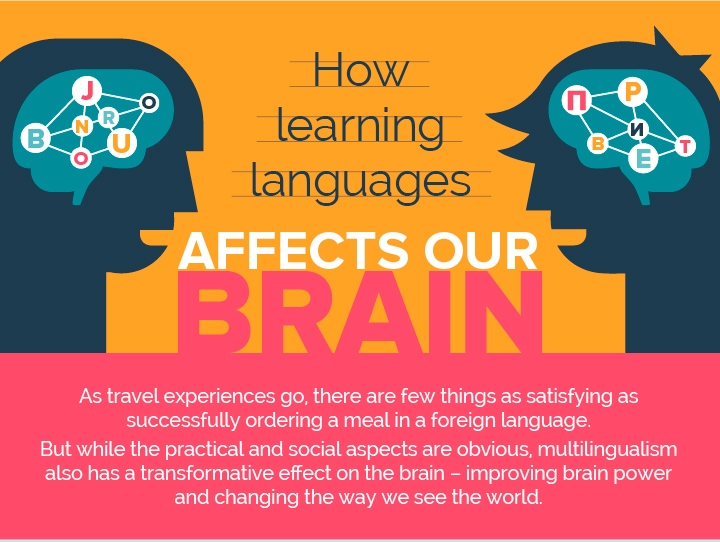
If you are experiencing the emotions of empty nest syndrome, it’s important to remember that you are not alone in feeling a sense of loss.
Although it is common in many parents around the world, don’t feel pressured to compare your journey to others or to ‘snap yourself out of it.’
Invest in self-care and healthy relationships, and focus on the positive aspects of your child’s young independence.
If you need additional support, get in touch with BetterUp. One of our expert coaches will be happy to support you.
Managing Empty Nest Syndrome
Written by WebMD Editorial Contributors
In this Article
- Dealing With the Changes
- Preparing for an Empty Nest
- Focus on the Positives
- When to Seek Help
Once the oldest last child leaves home, many parents experience feelings of sadness and loneliness. Empty nest syndrome isn't a clinical diagnosis, but it's a term used to describe these feelings. These feelings can be confusing and surprising as they seem to conflict with feelings of pride for your child’s accomplishments. Learn more about how to manage empty nest syndrome, accept your conflicting feelings, and when to seek help.
Learn more about how to manage empty nest syndrome, accept your conflicting feelings, and when to seek help.
Dealing With the Changes
You may also have a lot of conflicting feelings. You feel pride in your child and what they accomplished and also feel lost now that you don't have the day-to-day job of taking care of your child.
For most parents, this is a short-lived transition phase that only lasts a few months. In the meantime, there are measures you can take to help deal with transition, including:
- Accept that your feelings are normal.
- Consider starting a new career or starting a part-time job if you haven't been working.
- Take a class you're interested in.
- Take up a new hobby or one you've put on hold while taking care of your children.
- Volunteer for a cause you care about.
- Use technology to keep in touch with your children.
- Realize that your role as a parent has changed, not ended.
- Don't turn to alcohol or other vices to cope.

Preparing for an Empty Nest
If your child hasn't left home yet, now is the time to start preparing for this new phase of your life. There are few roles more meaningful than being a parent, but the more meaningful a role is in your life, the more difficult it is to accept when it changes. Many parents feel lost and describe feeling that their primary identity has changed or disappeared.
To get ready for this new phase of life and explore new roles, here are some steps to take before your child leaves home:
- Make a list of all of your current roles besides being a parent. Think of the roles that involve a significant investment of your time and energy. This could include roles such as: spouse, sibling, child, friend, employee, and volunteer.
- Go through your list and think about which of those roles you'd like to expand. Maybe you want to work on your career or spend more time with your friends. Or maybe this is the perfect time to rekindle the romance with your spouse.
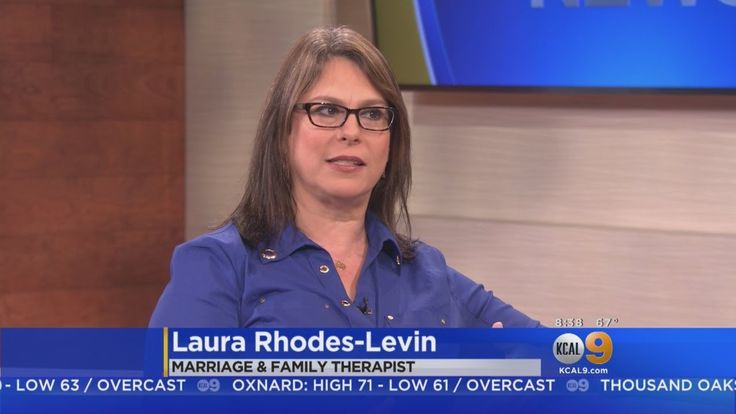 If you aren't married, this could be the perfect time to start dating.
If you aren't married, this could be the perfect time to start dating. - Brainstorm a list of new interests you'd like to explore. Think of hobbies you enjoyed before you had children or hobbies that you never had the time to try. Look for local groups, clubs, or meetups that revolve around these interests and can help you find community.
- Don't wait until your children leave home to start exploring your new roles and interests. Go ahead and sign up for a class or arrange lunch with a friend. You may not feel as excited as you hope at first, but your new activities and interests will help make your adjustment to your new life quicker and easier.
Focus on the Positives
A new line of research is showing that empty nest syndrome may not be so bad. Many parents report positive changes after their children leave home, including:
- More freedom
- Better connection with their spouses
- Time to pursue their own goals
- Pride and joy in seeing their children succeed
- Improved relationships with their children
- Better relationships with their siblings
- Fewer day-to-day stressors
- Continued involvement in their children's college and adult lives
When to Seek Help
Some people have a higher risk of developing empty nest syndrome, including:
- Mothers
- Single parents
- People in unhappy marriages
- Parents of only children
- Parents who are worried about their children's safety
- Younger parents
- Parents who lack social support
Whether you are in a high-risk group or not, you should seek help if you have symptoms of depression that last for more than two weeks. Symptoms of depression include:
Symptoms of depression include:
- Sleeping too much, or not enough
- Feeling sad
- Losing interest in activities you once enjoyed
- Tiredness or lack of energy
- Feeling guilty or worthless
- Trouble concentrating or making decisions
- Thinking about death or suicide
Depression is a common, but serious, medical condition that can negatively affect all aspects of your life. Depression is different from sadness and grief, but sometimes grief can lead to depression. Fortunately, depression can be treated. Between 80 and 90% of people with depression benefit from treatment. Talk with your doctor if you have symptoms of depression that last more than two weeks. They can provide a more thorough evaluation and recommend treatment if needed, which may include therapy with a separate provider and medicine such as antidepressants.
What is the empty nest syndrome and how not to fall apart when there is no one else to take care of
September 19, 2021 Relationship
If the chicks have flown away, it does not mean that life is over.
You can listen to the article. If it's more convenient for you, turn on the podcast.
When children have grown up and left home to live independently, parents may experience difficult emotions. These experiences are called the empty nest syndrome. We understand what it is and whether it can be dealt with. nine0003
What is empty nest syndrome
It is important to clarify right away: this is not an official diagnosis. It is not in any medical directory, and the doctor cannot write anything like this in the card. But this capacious figurative expression well describes the state of parents when their adult children left to study, got married or simply rented a house on their own and the house - the "nest" - was empty.
The empty nest syndrome is a complex of emotions. It may include confusion, a sense of loss and emptiness, sadness, boredom, anxiety, feelings of loneliness, fear of the future, and the like. nine0003
Why does it occur?
This condition has at least three reasons.
Parents have no one else to take care of
Or rather, at first they think so. Raising a child and caring for him took a lot of time, and in someone's picture of the world, this could even be the main meaning of life.
But now the child is already an adult and provides for his own needs, and his parents have freed up a lot of time and mental strength. And they still don’t know where to put all this, so they feel restless and strange. nine0003
Parents are bored and worried
Their closest person now lives somewhere far away, it is not clear what he does and it is not clear with whom he communicates. Will something happen to him? Will he get into trouble?
In addition, he no longer eats at the same table with his parents, does not clean with them, does not watch TV, does not quarrel with them over household trifles. The people who raised him yearn and want to spend more time with the “chick that flew out of the nest”.
Parents have no life of their own
If they devoted absolutely all their time to work and children, did not acquire interesting hobbies, dreams and plans, a couple of friends with whom it is pleasant to spend leisure time, then after the child “fledges”, it can be very difficult for them.
Where this state can lead
Opinions differ greatly on this issue.
Some studies suggest that empty nest syndrome is strongly associated with depression, anxiety and other mental disorders.
Other, more recent data indicate, and it is logical, that an empty nest, on the contrary, can become a source of good changes. Parents have free time and a lot of energy, they begin to do what they have been putting off for a long time, return to old hobbies or find new ones, communicate more, relax and travel, try themselves in different areas, take relationships to a new level. nine0003
Perhaps the path that a parent will eventually take depends on how prepared he is for parting with his children and what goals he sets for himself.
How to cope with surging emotions
Doctors and psychologists give several recommendations.
Prepare in advance
If you are a passionate person with many interests and a large social circle, chances are that change does not scare you so much, at least you will have something to do. But if in recent years you have invested all (th) of yourself in the family, it can be hard. nine0003
But if in recent years you have invested all (th) of yourself in the family, it can be hard. nine0003
The good news is that children usually don't move out of the house all of a sudden. And you can think of a strategy: what will you do when time is free; with whom you will communicate; where will you go. If it seems that there is nothing to do, you can remember abandoned hobbies, look for interesting courses, plan a trip. If part of your thoughts is occupied by clay modeling, Korean language or programming, it will be easier to cope with the surging feeling of emptiness.
Try to let go of expectations
Trying to observe the lives of children, keep track of their schedules and calculate the amount of free time, hoping that they will spend it in their parents' house, is not very constructive. As in the case of any other expectations: that a person will call you five times a day, at the first call, go to help in the country, talk about everything that happens in his life, and in general live this life the way you planned for him .
No matter how hard it is, you have to admit that a grown child is a separate person who may not meet your expectations and live as she likes. nine0003
Stay in touch
If the children have left and you communicate less, this does not mean that you are now strangers or that you are no longer loved. You need to find ways to keep in touch in a format that is convenient for everyone, even at a distance. Create a family chat and chat during the day, share photos, news, interesting articles from the Internet. Agree that once every one or two weeks you will definitely gather with the whole family or at least call up via video link if the child lives far away. nine0003
Look for common interests and common ground. Suddenly, both you and the children love the theater. Or skis. Or Scandinavian thrillers. This is an occasion to buy tickets for a new production, spend a day off in the woods together, or discuss the latest books by Jo Nesbø.
Communicate more with your other half
Since you are now alone, it is logical to support each other, spend as much time together as possible and look for activities that can interest both of you. This is a good chance to get a little closer, resolve old conflicts and refresh romantic relationships. nine0003
This is a good chance to get a little closer, resolve old conflicts and refresh romantic relationships. nine0003
Read also 🧐
- 10 facts for parents that will help raise happy children
- Is it possible to be ready for the birth of a child and how to check it
- What to do for parents who want to raise an independent child
- 13 things I learned when I became a father
- How to take care of the health of elderly relatives
Psychologist told how to survive the "empty nest syndrome"
Empty nest syndrome is a beautiful expression behind which hides a tangle of not very pleasant emotions and experiences of parents whose child becomes independent. Children leave to study, create their own families or simply decide to live separately. Inna Khamitova, a psychologist and director of the Center for Systemic Family Therapy, tells how to survive this period.
Perhaps every parent has an empty nest syndrome?
Inna Khamitova: This is what happens to all of us when our children grow up and leave the house.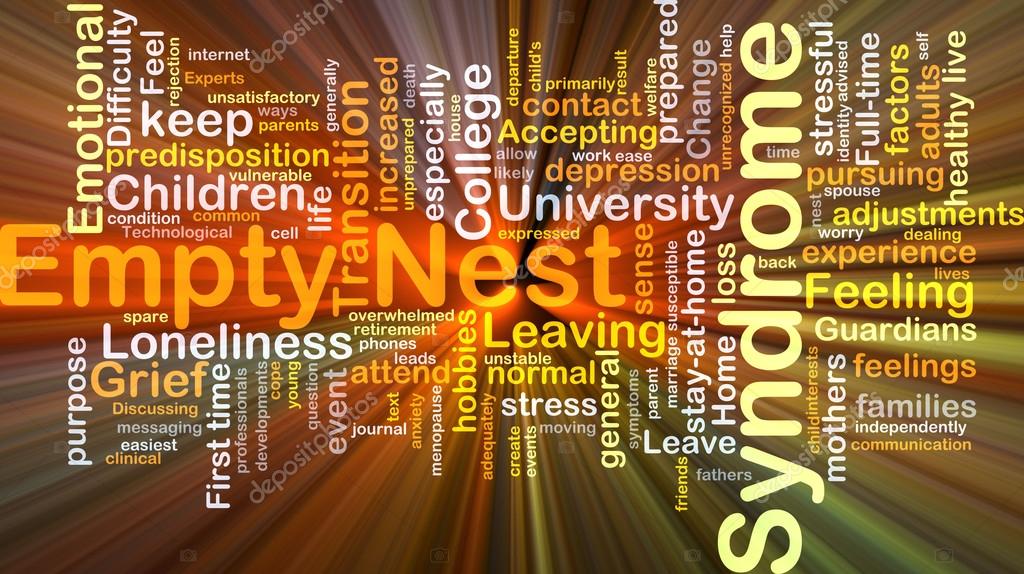 And they leave their parents in almost the same position in which they were in the first years of married life. But then they were young and not burdened with offspring. And now they have a long life behind them.
And they leave their parents in almost the same position in which they were in the first years of married life. But then they were young and not burdened with offspring. And now they have a long life behind them.
And here everything depends on what this path was like. The empty nest syndrome can flare up in full force - and the family will not survive. Either the new period will be a renaissance in relationships, will give greater freedom, greater satisfaction with life. nine0003
In other words, an "empty nest" is not always a symbol of melancholy and abandonment?
Inna Khamitova: Remember, when children are just growing up, how nice it is sometimes to return to an empty house, when they are, for example, in the camp or with their grandmother and you can go about your own business. So now, when they have grown up safely, your "empty nest" may well evoke positive feelings, the feeling that you have paid all family and social debts, are free from obligations and your life finally belongs only to you.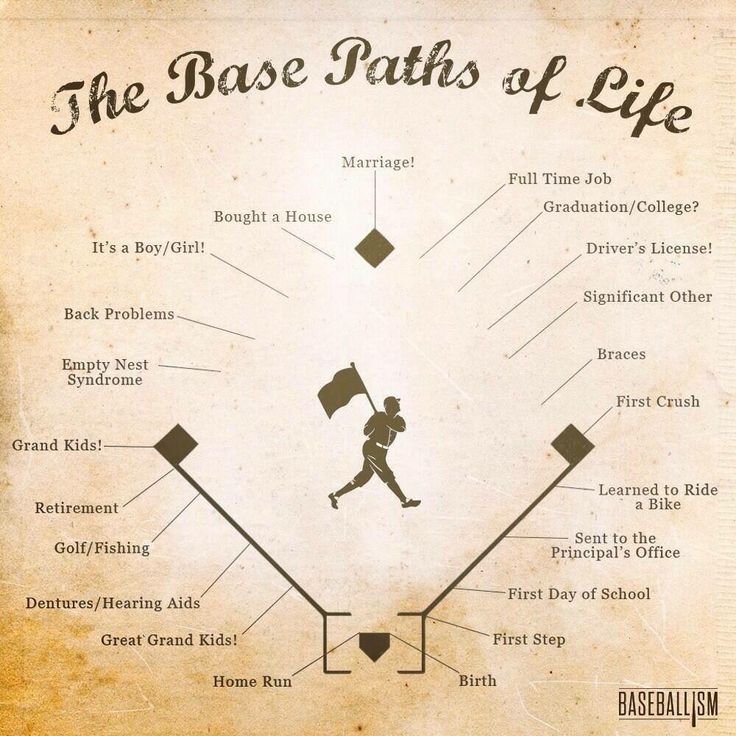 But often, because of an empty nest, a person begins to feel that his life seems to be incomplete. nine0003
But often, because of an empty nest, a person begins to feel that his life seems to be incomplete. nine0003
And that life itself is now meaningless, abandoned, like that old nest from which the chicks have flown... approaching adulthood. According to statistics, the first wave of divorces occurs in the second year of marriage, but the next wave of breakups happens just after the grown-up children fly out of the nest. nine0003 It turns out that these are not the experiences of one person, but the common problem of a couple? Inna Khamitova: There are even more characters involved in this play than just spouses... What is happening? When a couple becomes parents, they are distracted from their own marital relationship and switch to parenting. And sometimes it turns out that the family generally rests only on their parenthood. Then the spouses are afraid to let the grown child out into the world. Not only because of natural anxieties about how a child will cope with adulthood. The empty nest syndrome can flare up in full force - and then the family will not survive But more often, nevertheless, separation occurs, the child grows up and leaves ... Inna Khamitova: ...And adults have to turn around to each other. And then there are unpleasant discoveries: for example, people realize that too many grievances have accumulated between them. What other scenarios are possible? Inna Khamitova: Here's another option. It is known what big investments - material, emotional and physical - the upbringing of children requires. And also a job, a career. And it turns out that people in their youth work a lot and take care of children. And, finally, the happiest scenario, when people did not move away from each other, they were always close in their marriage. Yes, and something is changing with them, children's voices are not heard. But - and so good. The state when you feel good both with children and without children is exactly what you should strive for. At an age when many are overtaken by the syndrome of an empty nest, I looked at my peers: someone became interested in sailing, someone opened their own business, someone radically changed their place of residence... Started like a second life? Inna Khamitova: Yes, it's not for nothing that they say now that the current 30 years are the former 20, the current 50 are the former 40. But also because of fear for their marital relationship, for what will happen to their couple if the fledgling child flies away. And it happens that on both sides - children's and parent's - there is an unspoken compromise: children do not seem to grow up, and parents ... do everything so that they do not grow up. In such a family, the empty nest syndrome will not happen. There will be only fruitless attempts to break the vicious circle. And sad stories when a teenager starts drinking, leading an antisocial lifestyle so that his parents can forever take care of him. nine0003
But also because of fear for their marital relationship, for what will happen to their couple if the fledgling child flies away. And it happens that on both sides - children's and parent's - there is an unspoken compromise: children do not seem to grow up, and parents ... do everything so that they do not grow up. In such a family, the empty nest syndrome will not happen. There will be only fruitless attempts to break the vicious circle. And sad stories when a teenager starts drinking, leading an antisocial lifestyle so that his parents can forever take care of him. nine0003  Or - that they just became complete strangers to each other. Because over the past years they have completely focused on parenthood, developed as if separately and became very distant from each other. This is a crisis that almost every family goes through. People ask questions. "Why do I need this? The children have grown up, my husband is a stranger, I'll go, finally, go about my business." Or: "My wife does not understand me at all, she is a strange woman for me, I am not interested in her." Connections begin on the side, and this, as a rule, ends in divorce ... Not every family can effectively go through the period of an empty nest. Especially when their marital bond has always been very weak. nine0003
Or - that they just became complete strangers to each other. Because over the past years they have completely focused on parenthood, developed as if separately and became very distant from each other. This is a crisis that almost every family goes through. People ask questions. "Why do I need this? The children have grown up, my husband is a stranger, I'll go, finally, go about my business." Or: "My wife does not understand me at all, she is a strange woman for me, I am not interested in her." Connections begin on the side, and this, as a rule, ends in divorce ... Not every family can effectively go through the period of an empty nest. Especially when their marital bond has always been very weak. nine0003  And they do not have enough strength to live in a pair. And when the children flit out, the spouses finally turn to each other and notice: "What an interesting person, it turns out, next to me!" At the same time, they already have more material opportunities than in their youth, and excellent prospects open up before them. Now they can develop together, they have become more experienced and interesting. nine0003
And they do not have enough strength to live in a pair. And when the children flit out, the spouses finally turn to each other and notice: "What an interesting person, it turns out, next to me!" At the same time, they already have more material opportunities than in their youth, and excellent prospects open up before them. Now they can develop together, they have become more experienced and interesting. nine0003 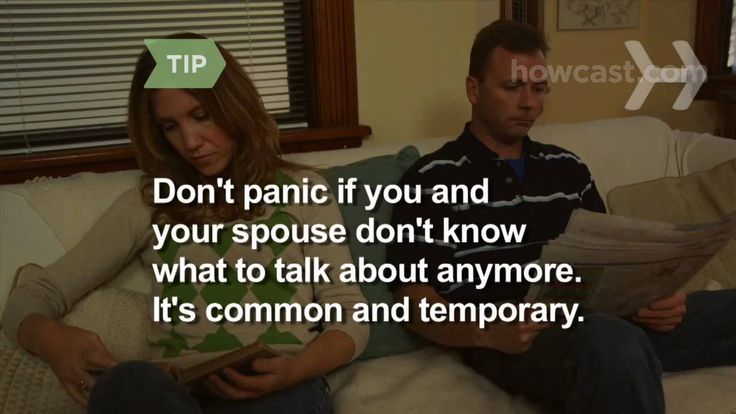
Learn more

